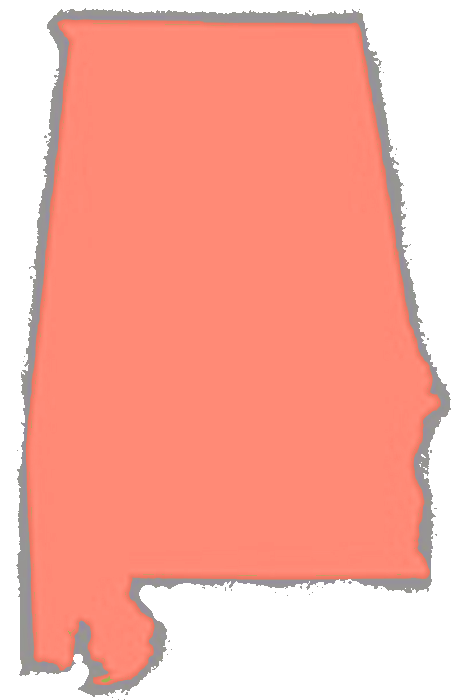Mobile Advertiser & Register
June 9, 1861
Page 2
The
Soldiers at Harper’s Ferry.
-------
We take the
following from the Harper’s Ferry correspondence of the Charleston Courier:
The number of
troops at this point is probably not far from __ thousand. Eleven hundred and sixty of these are
Alabamians, fifteen hundred are Mississippians, five hundred are Kentuckians,
and the balance is made of Virginians, sprinkled with more
less from every State South of Mason and Dixon’s Line.
A considerable number, by the way, are Indians from North Carolina,
vigorous, hearty looking red-men, but in what force they are here I am unable
to say: also a goodly share of Baltimore boys, who have straggled hither by
twos and threes, on foot and in the cars, impelled both by a desire to escape
prosecution for participating in the riot of April 19th, and to take
their place in the approaching contest.
These form, so to speak, a “cohort” by themselves, and if they fight as
well as they talk, will do an immense amount of work. Their distinguishing feature is generally an
abbreviated crop of hair, which, to use their favorite expression, has been
filed “down,” a nose which bears the mark of contact with that indefinite substance
yclept a “brickbat,” before which the graceful proportions of that organ have
ignominiously retreated, and a style of conversation so miscellaneous and
emphatic, that it would require a thorough revision of Webster’s unabridged to
embrace its numerous improvements on the Anglo Saxon. Their most eloquent topic is “a muss,” and
upon this theme they pour forth such a cascade of spluttering expletives as
would make Parson Brownlow groan from sheer inability
at successful imitation. You will
recognize this interesting species under the euphonic name “Plugs.”
The Alabamians are
by this time safely ensconced in camp among the mountains on the Maryland side. The locality is one which will first bring
them in contact with an approaching enemy, and being a post of honor, they made
the request that they should be permitted to occupy it as soon as they
arrived. The corps embraces some of the
wealthiest and most influential citizens of Alabama—lawyers, doctors, professors,
editors, printers, merchants and planters together with a strong infusion of
the hardy born and sinew of the country districts. The Mississippians are of much the same
character. The Kentuckians are a class
by themselves. They are generally a
large, well-formed, robust set of men, splendid marksmen, independent as the
air; and in their careless, yet not ungraceful movements, one may almost carry
his thoughts back into the past and imagine our forefathers of the forest
borders around him. When they first
arrived, being without arms, it was proposed to give them muskets, but these
were refused under any circumstances.
The boys said they didn’t know how to shoot “soger”
tools, and if they couldn’t have rifles they “would rather throw rocks.” Considering the length of time they have now
been here, their regiment is probably the worst drilled at Harper’s Ferry. But the fault is entirely their own. They can’t see the use of it; they won’t be
persuaded to learn, and as for attempting to force one of them into anything
like systematic discipline, you might as well endeavor to put a hurricane in
harness. A military gentleman
who visited their encampment in the mountains, remarked to a little group that
he regretted they were not better drilled.
“What’s the good of that?” said one of the men. “We come here to wade in any whar, and when we see a good shot, you may bet your life
stranger, we’re goin to shoot.” “See here,” continued the beefeater, “here’s
our drill,” and taking his bowie knife from his belt he fixed it in a tree with
the edge of the blade outwards. Then
marching off a distance of sixty or seventy yards, aimed his rifle and split a
bullet upon the blade. “You see
stranger, if we ain’t much on sogerin,
we are powerful good at drawin a bead.”
Col. Jackson,
the commandant, is still busy erecting batteries. He evidently believes as much in the shovel
and pick as weapons of war, as he does in the rifle and musket. Every morning a company of fifty or sixty
darkies, whistling “dixie’s land,” file across the
bridge over the Potomac, on their way into the mountains, where they are throwing
up earth works; but the point of their destination and the character of their
work is [tear in paper obscures half a line] who have the superintendence of
affairs. No one can [tear in paper
obscures half a line] the bridges without a permit [tear in paper obscures half
a line] and, consequently, every movement on the sides of the rivers is kept
secret.
The manufacturing
of Minie rifles is still actively going on. One or two hundred are daily turned out. Large numbers of balls and ball cartridges
are also being made. Of powder, I am
informed there is an abundance. Strange as it may seem a quantity was
recently brought here from neighborhood of Baltimore by a couple of Irishmen, who drove
it across the country in a horse team.
To conceal it from view, the load [was] covered with iron ore, and
whenever a strange sail hove in sight the two Paddies suddenly appeared to be
on the jolliest kind of a drunk, [and] so remained until the danger was passed,
w___ they pushed forward with all speed.





